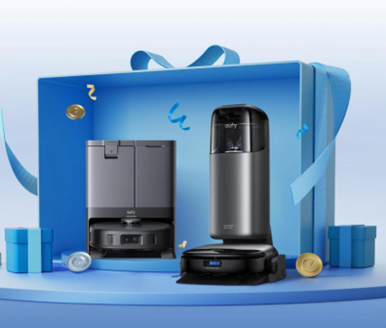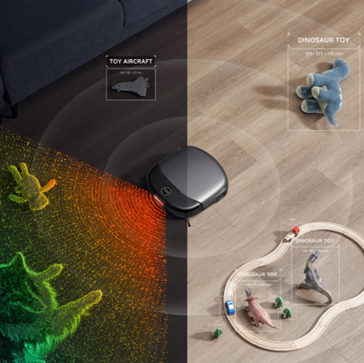How to Choose the Right Robot Vacuum for Your Home
Modern households are often busy places where cleaning can feel like an endless task. That is why many people are turning to robot vacuums, which promise to take the weight off daily chores and keep floors tidy with minimal effort. For families, students, or anyone juggling a hectic lifestyle, an automated cleaner can become a reliable partner that saves both time and energy. Among the many available choices, eufy has earned recognition for producing some of the best robot vacuum models that balance performance, affordability, and ease of use. Trying one of these devices often feels like finally having a quiet helper at home. In this article, we will guide you step by step through the important considerations to make when choosing the right robot vacuum for your household.

Key Features to Consider Before You Buy
Suction Power and Performance
When evaluating robot vacuums, suction power is one of the first specifications people notice. Strong suction allows the vacuum to pick up dust, crumbs, and pet hair more effectively, especially on carpets. However, it is not just about raw power; how the vacuum distributes that power across different surfaces also matters. A good robot vacuum should automatically adjust suction depending on whether it is cleaning hardwood floors or high-pile rugs. By ensuring strong yet efficient performance, you reduce the need for repeat runs and achieve consistently clean floors. For families with pets or children, this reliability is especially valuable.
Battery Life and Charging
The convenience of a robot vacuum largely depends on how long it can run before returning to its dock. Models with extended battery life can cover larger areas in a single session, making them suitable for bigger homes. Even if your home is modest in size, a vacuum that recharges quickly and resumes cleaning without intervention saves you the hassle of monitoring its progress. Some vacuums also feature intelligent charging systems that only power up to the level needed to finish the job, which reduces downtime. A well-designed charging system ensures your robot vacuum remains ready when you need it, fitting seamlessly into your daily routine.
Dustbin Capacity and Maintenance
A robot vacuum may clean automatically, but you still need to manage its dustbin. Small dustbins require frequent emptying, which can quickly feel inconvenient if you run the device daily. Larger dustbins or models with self-emptying systems offer a much smoother experience. Maintenance also includes keeping filters clean and brushes untangled, especially in homes with pets. When a vacuum is designed with user-friendly maintenance in mind, it reduces the time you spend fiddling with parts and increases the value of the machine overall. Ultimately, choosing the right balance of dustbin capacity and easy upkeep makes your investment more practical and enjoyable.
Understanding Navigation and Smart Mapping Technology
Camera-Based vs. LiDAR Navigation
Navigation is what separates a basic robot vacuum from a truly intelligent one. Camera-based navigation uses visual cues to map out your home, while LiDAR relies on lasers to create accurate room layouts. Both approaches have their strengths. Camera-based systems can recognize landmarks and adapt in real-time, but they may struggle in dim lighting. LiDAR, on the other hand, excels at precision mapping regardless of lighting conditions, making it highly reliable. When comparing the two, consider your home’s layout and how often you clean during the day or evening. Picking the right navigation type ensures the vacuum works smoothly in your environment.
The Advantage of Smart Mapping and No-Go Zones
Smart mapping technology allows robot vacuums to learn your home’s layout and plan efficient cleaning paths. Instead of moving randomly, the vacuum follows logical routes that reduce cleaning time and improve coverage. Many advanced models also let you set no-go zones through an app, which is especially useful if you want to keep the vacuum away from delicate rugs or children’s play areas. This feature gives you more control and peace of mind, knowing the vacuum can work independently without causing disruption. Over time, the combination of smart mapping and customizable boundaries enhances both convenience and performance.

Matching a Robot Vacuum to Your Home
Different homes present different challenges, and the type of flooring you have plays a major role in choosing the right vacuum. Hardwood floors and tiles are usually easier to clean, requiring steady suction but less aggressive brushes. Carpets, however, demand stronger suction and often benefit from specialized brush rolls to pull out embedded debris. If your home has multiple flooring types, consider a model that automatically adapts its cleaning power. Layout also matters—open floor plans are easier for robot vacuums to navigate, while homes with many tight corners or obstacles require a device with superior navigation skills. By aligning the vacuum’s strengths with your home’s unique needs, you get the most value from your purchase.
Conclusion
Choosing a robot vacuum may feel overwhelming at first, but understanding the key features, navigation systems, and how well the device suits your flooring can simplify the process. By focusing on suction power, battery life, maintenance needs, and mapping technology, you can narrow your options and find a model that fits your lifestyle. Homes today benefit greatly from these automated helpers, which quietly take on one of the most repetitive household tasks. With the right choice, your perfect cleaning partner is only a step away, ready to make your home life easier and more comfortable.